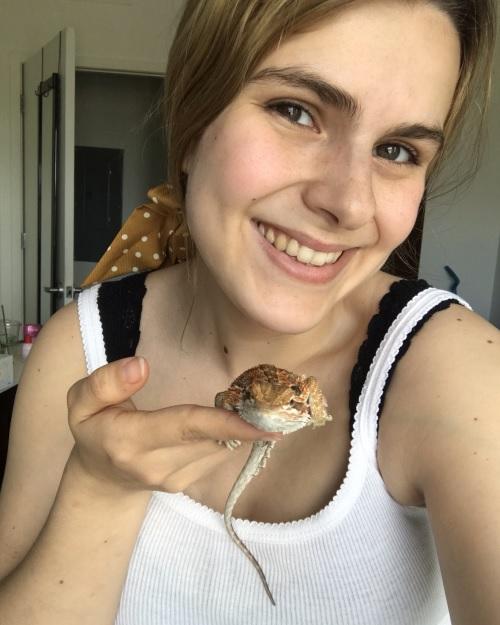-
About
- Leadership & Faculty
- News & Events
-
Academics
- Graduate
- Advanced Clinical Training
- Continuing Education
-
Student Life
-
Research
-
Hospitals & Clinics
- Emergency Care
- Hospital Services
-
Community Outreach
- Volunteer
Biography
Red Hook, NY
Animal Science
University of Vermont, 2020
Why did you choose to pursue this degree, and why did you choose Cummings School of Veterinary Medicine to pursue this degree?
I have had an interest in conservation my entire life and I have been visiting the Bronx Zoo and learning about WCS and conservation since I was a child. My studies at the University of Vermont gave me the opportunity to explore my passion for nature, and my minor in wildlife biology introduced classes that fed my interest, especially my herpetology class. I want to continue to build on my knowledge and skills in the conservation field, and to make connections with experts in this field that can advise me on the best ways I can make an impact. I chose Cummings School of Veterinary Medicine after hearing about it from a close friend who completed the degree in 2022. She could not say enough about how incredible this program is and how it has allowed her to make so many meaningful connections in the field. After looking into the program further, I saw the extensive opportunities and resources available, as well as the team of knowledgeable professors we would be connecting with and couldn’t wait to apply!
What are your interests and/or experience relative to your program?
During my undergraduate degree, I studied abroad in Ecuador and took a class that focused on conserving purebred alpacas in Peru and Ecuador. We learned about how human interference led to the blending of llamas and alpacas, leading to a sharp decline in the number of pure-blooded alpacas in South America. We spent our time in Ecuador vaccinating and performing simple medical procedures on the alpacas. I also have volunteer experience conducting herpetology surveys, taking care of animals at a local AZA-accredited zoo, and rehabilitating bats affected by white nose syndrome (WNS). Most recently, I worked as a zookeeper at the Bronx Zoo, where one of my primary jobs was to participate in programs with the public, teaching them about the different types of endangered species we have in our care and how/why conserving them is important.
What are your career goals after completing the program?
After this program, I’m considering either applying to veterinary school or joining the field of wildlife biology. I am interested in both, and I am hoping for this program and the people I connect with will shed some light on the opportunities available to me and the one that is the right fit for me. Whatever I choose, I want to carry a One Health approach with me and use it to guide my work. I am also planning to become a licensed wildlife rehabilitator and am hoping to gain more experience caring for wildlife.
